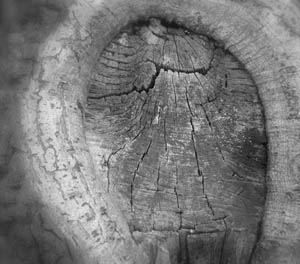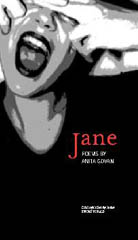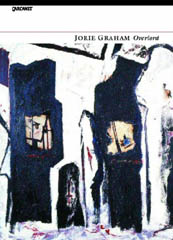Jorie Graham
Poetry Roundup
 An occasional literary journal with wide cultural sympathies, Fras provides an outlet for work of quality in Scots, Gaelic and English. This little magazine is fast becoming one of Scotland’s liveliest occasional literary journals. The work in Fras 3, I think, is of a very high quality and the editors can be rightly pleased to know that their aims have confounded their expectations, by surpassing them. Poems in this issue are represented by D. M. Black’s ‘Three Goethe translations’ and Raymond Vettese’s ‘Seven Poems’. His ‘Patience’ is a gentle reminder to us all: ‘The mannie paints the iron gate./The roost disna fash. It can wait.’
An occasional literary journal with wide cultural sympathies, Fras provides an outlet for work of quality in Scots, Gaelic and English. This little magazine is fast becoming one of Scotland’s liveliest occasional literary journals. The work in Fras 3, I think, is of a very high quality and the editors can be rightly pleased to know that their aims have confounded their expectations, by surpassing them. Poems in this issue are represented by D. M. Black’s ‘Three Goethe translations’ and Raymond Vettese’s ‘Seven Poems’. His ‘Patience’ is a gentle reminder to us all: ‘The mannie paints the iron gate./The roost disna fash. It can wait.’
Not solely a poetry magazine, Fras also contains short stories and essays. John Herdman’s shocking mystery story ‘My Wife’s Lovers’, in the tradition of Stevenson, James and Spark, is about a literary biographer who eschews the generally accepted, but unwritten, professional code in his pursuit of the truth, and brings a new meaning to the adage ‘the letter killeth.’ ‘My Wife’s Lovers’ is to be the title of Herdman’s forthcoming collection of ten tales, each connected with a narrative frame.
Richard Livermore in his short essay on De-Post-Modernising rejects post-modern discourse with its democratic-sounding ‘aestheticisation of everyday life’ and argues that ‘post-modernists … revel in surfaces, and say there is no reality beneath.’ This ‘aestheticisation’ is in effect nothing more than an over-privileging of our consumer culture, created, mediated and supported through semiotically-savvy advertising and the mass-media. Hence its inimitability to art, and to poetry in particular, which are labelled elitist because they require a reflective space of their own, and which post-modern theory will not afford it. Livermore suspects that ‘art will come back into its own and no longer be denigrated as elitist. It will come to be seen as an integral part of that ”reflective space” which everyone will have to create for themselves once they have moved beyond our present infantile Post-Modern Condition.’
Under Duncan Glen’s Ravenscraig Poetry Pamphlet imprint come two recent titles: A.C. Clarke’s The Gallery on the Left and Norman Kreitman’s Casanova’s 72nd Birthday. Kreitman’s collection includes accomplished meditations on self as older, wiser man, as in his ‘Confessions’: ‘Having reached the age when one begins/to see some answers clearly, and to find/that most of them are wrong, I console myself/ with vignettes … the first time I was stunned/by the grand ambiguities of art./Not everything though is in the past;/… life still has its adventures.’ The title-poem has the elderly Casanova, ‘yesterday’s man’, but not an unsmiling ‘voyeur to his own sweet reveries.’ Though the ‘gleaming limbs slip away,/into stories of their own, he is not sad,/for if, living they came to him now/he would not even wish to want them.’ Like Milton’s Samson Agonistes, ‘calm of mind, all passion spent.’ In ‘Fishing with Norman MacCaig’, Kreitman remembers a private side of the great man ‘in the boat, as befits a sedulous angler, he was taciturn, though between essential words/would give that courteous, gentle smile/ … before his gaze returned/to the contemplation of the water. And when … he hooked a trout/he’d eye it dispassionately, as one whose life was spent/retrieving silver from all the elements of Scotland.’
A.C. Clarke’s The Gallery on the Left focuses on themes suggested by works of art in galleries and museums and depicts in words the images first created in paint. In translating these visual texts to the printed page, Clarke embues her work with verbal colours as rich and as subtle as the originals. In ‘Seven Poems after visiting the Vermeer Exhibition at the Hague in 1996′, Clarke revivifies Vermeer’s Geographer, ‘dressed in a gown for the study,/points with dividers/across a map/unscrolled under the window’s/lefthanded light./Painted worlds spin above him on the shelf./His gestures/open continents.’ Nearer home in the National Galleries of Scotland, St Agatha is shown to ‘offer her breasts on a salver,/each tipped with a pert cherry/like two iced buns … served up for the titillation/of bored Renaissance princes.’ Looking for signs of mastectomy, Clarke realises her folly. Art conceals art. Rather, she ‘should admire the handling of paint,/the artist’s subtle arrangement of drapery.’
 Anita Govan’s subtle arrangement of words on the page is what typifies the contents of her first distinctive collection, Jane. Known foremost as a performance poet, Govan’s poems work equally well in print, as can be seen here in this new and welcome venue. Her poems display great verbal economy, not a word wasted and every image sharp and taut. In ‘Pebbles’, Govan writes out the regrets of things gone for ever, ‘all these things I tried to say/falling as/bleached bones/shattered at the ends of days/all these rich hopes/escaped/fragile with neglect/misty moments blown away/all these things/forgot/fragments lost/washed smooth and round/just pebbles/now/one skipped thrice across the loch/before it drowned.’ Here Govan’s words ‘are naked/stripped bare to the bone/an inch from the edge of this endless road.’ Her themes are universal. Witty, clever, poignant musings on the human predicament. Perhaps the most remarkable of Govan’s works is her ‘Three monkeys and me’. Like a Stevie Smith poem, with its quirky hymn-like quality, and refrain between its verses, read it out loud, chant it, to hear its full impact. Powerful stuff.
Anita Govan’s subtle arrangement of words on the page is what typifies the contents of her first distinctive collection, Jane. Known foremost as a performance poet, Govan’s poems work equally well in print, as can be seen here in this new and welcome venue. Her poems display great verbal economy, not a word wasted and every image sharp and taut. In ‘Pebbles’, Govan writes out the regrets of things gone for ever, ‘all these things I tried to say/falling as/bleached bones/shattered at the ends of days/all these rich hopes/escaped/fragile with neglect/misty moments blown away/all these things/forgot/fragments lost/washed smooth and round/just pebbles/now/one skipped thrice across the loch/before it drowned.’ Here Govan’s words ‘are naked/stripped bare to the bone/an inch from the edge of this endless road.’ Her themes are universal. Witty, clever, poignant musings on the human predicament. Perhaps the most remarkable of Govan’s works is her ‘Three monkeys and me’. Like a Stevie Smith poem, with its quirky hymn-like quality, and refrain between its verses, read it out loud, chant it, to hear its full impact. Powerful stuff.
The despair, violence and fear that war unleashes are the themes that dominate Jorie Graham’s new collection, Overlords. Her poems alternate between the Normandy at the time of the Allied liberation of occupied France in 1944 and the same landscape sixty years later.  Many of the landings poems take the form of imagined log-book type entries made by American airmen on their way at ‘the appointed time’ to ‘the meeting place’ for ‘the experience of killing and getting killed./Get missed. Get hit. Sun – is it with us. Holiday,/are you with us on this beach today.’ Except it is no holiday. Then, ‘bullets up through our feet, explosion of Jack’s face, more sudden openings/in backs, shoulders, one in a neck, throats open, I happen to see an eye/pushed back, through the face, then on back through/the canvas skin … /Yet the weather over the Channel is very good./Excellent visibility.’
Many of the landings poems take the form of imagined log-book type entries made by American airmen on their way at ‘the appointed time’ to ‘the meeting place’ for ‘the experience of killing and getting killed./Get missed. Get hit. Sun – is it with us. Holiday,/are you with us on this beach today.’ Except it is no holiday. Then, ‘bullets up through our feet, explosion of Jack’s face, more sudden openings/in backs, shoulders, one in a neck, throats open, I happen to see an eye/pushed back, through the face, then on back through/the canvas skin … /Yet the weather over the Channel is very good./Excellent visibility.’
The war in Europe was long ago fought and won, the awful business of being human does not change. For Graham, ‘the destination changes. But/the movement is the same.’ In ‘Passenger’, the exile or political refugee has had to leave family behind. ‘Behind – is what you would call/your country … We could change places. You see of course it’s only on this page/we can do that …./I will say I was thinking of my country … I am afraid I will not be able to handle your suffering.’ Empathy helps, but is not enough. In ‘Copy’, Graham takes up the cause of Amina Lawal, a Nigerian woman, condemned ‘to be/buried/up to her neck and stoned’, for the crime of adultery. In this ‘poem about wanting to survive,’ Graham, speaking to us all, reminds us that, ‘from where you are, from where you are compelled/to be,/good and evil are the only alternatives.’
Graham’s work is political, philosophical, cerebral. It is not easy to read, in any sense of the word. And it does not offer much reassurance about what it is to be human. But there is perhaps some feint glimmer of light. The final poem in her collection, ‘Posterity’, closes with ‘the rain has ceased,/I stare at the gleaming garden.’
A.C. Clarke, The Gallery on the Left, Akros (ISBN 0861421477 PBK £2.95); Fras 3, Fras Publications, from Atholl Browse Bookshop by the Station, Blair Atholl, Perthshire, PH18 5SG, £4; Anita Govan, Jane, Luath Press, (ISBN 1905222149 PBK £6.99); Jorie Graham, Overlord, Carcanet, (ISBN 1857548205 PBK £9.95); Norman Kreitman, Casanova’s 72nd Birthday, Akros, (ISBN 0861421485 PBK£3.95)
© Michael Lister 2006

Comments